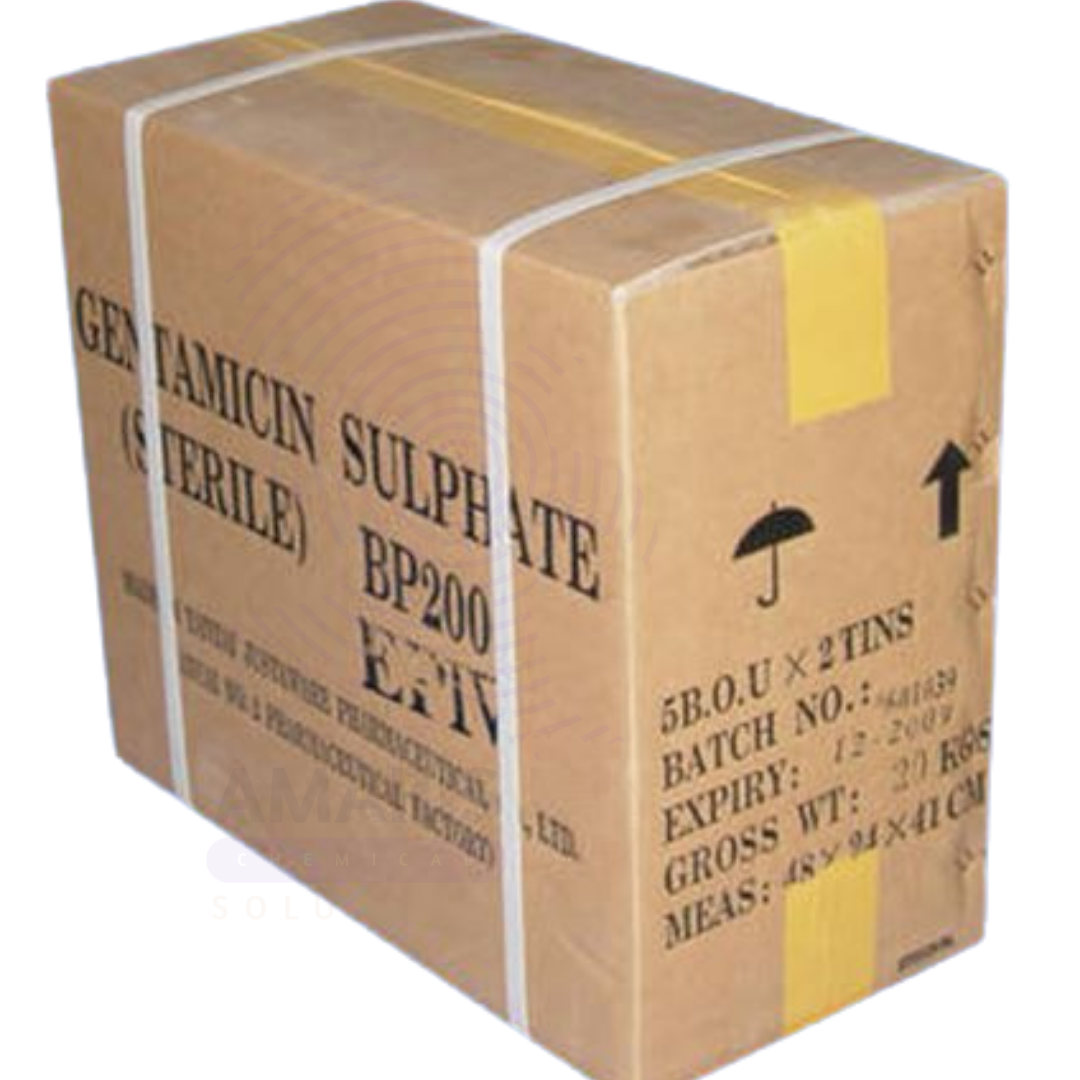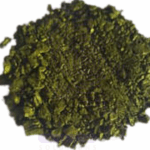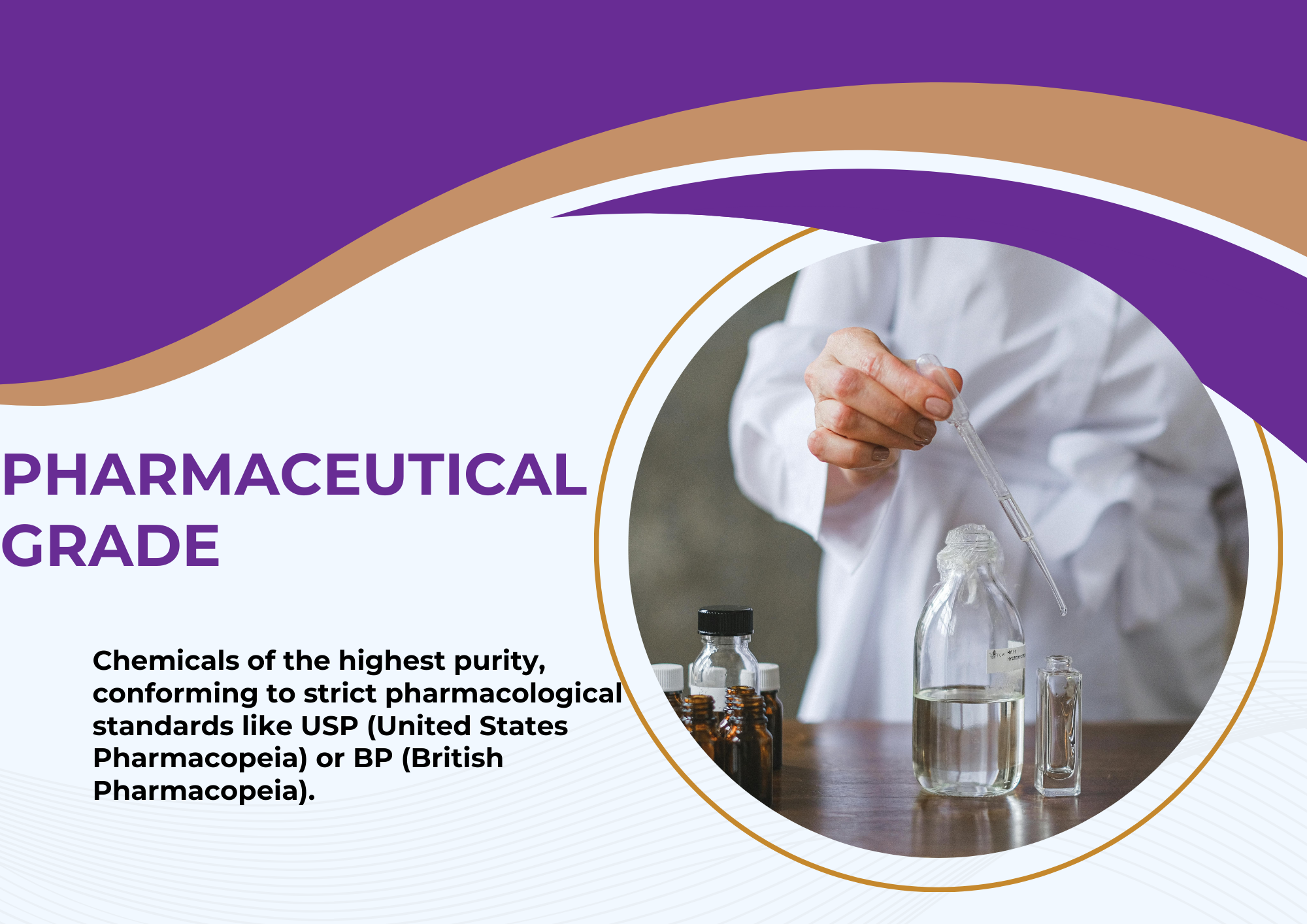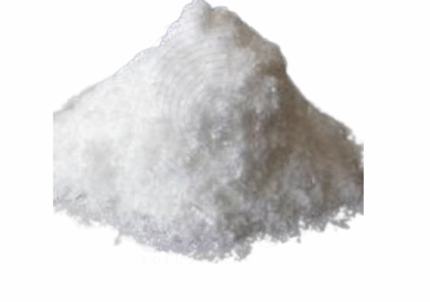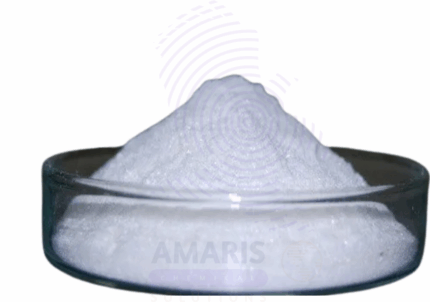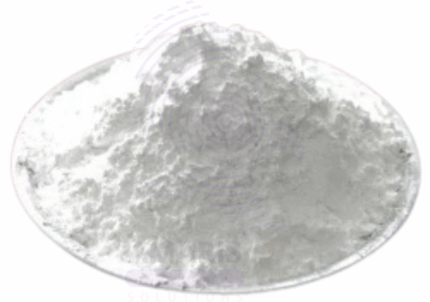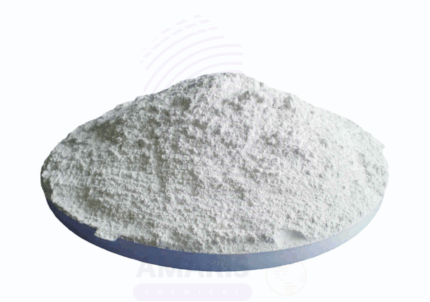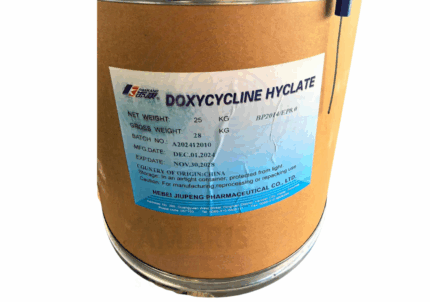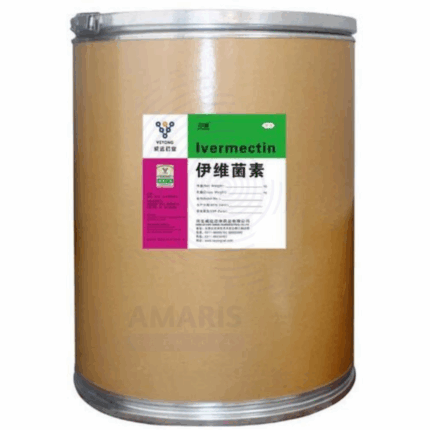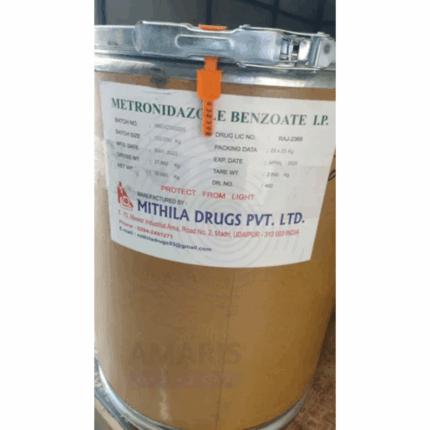Gentamycin Sulphate
Whatsapp Order
Gentamycin Sulphate is an aminoglycoside antibiotic derived from Micromonospora purpurea and Micromonospora griseorubida. It appears as a white or off-white crystalline powder, highly soluble in water, with a characteristic aminoglycoside odor. Gentamycin Sulphate is widely used in human and veterinary medicine for its broad-spectrum bactericidal activity against aerobic Gram-negative and some Gram-positive bacteria. It works by inhibiting bacterial protein synthesis through binding to the 30S ribosomal subunit, leading to bacterial cell death. Due to its effectiveness against severe infections and multi-drug resistant strains, it is an essential antibiotic in clinical settings.
Description
Table of Contents
Toggle
Gentamycin Sulphate
Primary Uses
- Medical and Veterinary Therapeutics
- Used systemically (intravenous, intramuscular, subcutaneous) to treat serious infections caused by susceptible strains, including septicemia, respiratory tract infections, urinary tract infections, abdominal infections, bone and joint infections, and skin infections.
- Applied topically in ointments, creams, and eye drops for localized infections such as burns, wounds, otitis externa, and conjunctivitis.
- Commonly combined with other antibiotics for synergistic effects in complicated infections, especially against Pseudomonas aeruginosa, E. coli, Klebsiella, and Staphylococcus aureus.
- Veterinary use includes treatment of bacterial infections in livestock, poultry, and companion animals, such as mastitis, respiratory diseases, and skin infections.
- Pharmaceutical Industry
- Used as an active pharmaceutical ingredient (API) in the manufacture of injectable solutions, topical formulations, ophthalmic preparations, and ear drops.
- Incorporated in combination drug therapies to broaden antimicrobial spectrum and reduce resistance development.
- Research and Development
- Employed as a standard antibiotic in microbiological research for susceptibility testing and antimicrobial studies.
- Used in development of new formulations and drug delivery systems including liposomal and nanoparticle carriers for enhanced efficacy and reduced toxicity.
Secondary Uses
- Agricultural Applications
- Occasionally used in aquaculture to control bacterial diseases in fish farming (where permitted by regulations).
- Industrial Microbiology
- Used in contamination control in cell culture and bioprocessing environments.
KEY PRODUCT FEATURES
1. Basic Identification Attributes
- Chemical Name: Gentamycin Sulphate
- Common/Trade Name: Gentamycin Sulphate
- CAS Number: 1405-41-0
- HS Code: 2941.30
- Molecular Formula: Mixture of gentamicin components (C21H43N5O7·H2SO4 for sulfate salt)
- Synonyms: Gentamicin Sulfate, Gentamycin Sulfate, Gentamicin Sulphate
2. Physical & Chemical Properties
- Physical State: Crystalline powder
- Color & Odor: White to off-white; slight characteristic odor
- Solubility: Highly soluble in water; insoluble in organic solvents like ethanol and ether
- pH: Typically 3.0–5.5 (1% aqueous solution)
- Stability: Stable under dry conditions; sensitive to light and heat; degrades in strong acidic or alkaline media
3. Safety & Hazard Attributes
- Hazard Class (GHS): Harmful if swallowed; may cause respiratory sensitization and skin or eye irritation
- Toxicity: Nephrotoxic and ototoxic potential at high doses or prolonged use; requires medical supervision
- Exposure Limits: Occupational exposure limits vary; follow institutional safety guidelines
4. Storage & Handling Attributes
- Storage Conditions: Store in tightly sealed containers, protected from moisture, heat, and light
- Container Type: Amber glass or plastic containers with moisture-proof sealing
- Shelf Life: Typically 24 months under recommended storage
- Handling Precautions: Use appropriate PPE to avoid inhalation, ingestion, or skin contact; handle in well-ventilated areas
5. Regulatory & Compliance Attributes
- Approved by WHO, FDA, EMA, and other global regulatory authorities for human and veterinary use
- Listed in the WHO Model List of Essential Medicines
- Subject to prescription and controlled distribution due to antibiotic resistance concerns
6. Environmental & Health Impact
- Biodegradability: Slowly biodegradable; environmental persistence possible
- Ecotoxicity: Toxic to aquatic organisms; avoid environmental release
- Bioaccumulation: Not expected to bioaccumulate significantly
- Carcinogenicity/Mutagenicity: Not classified as carcinogenic or mutagenic
SAFETY HANDLING PRECAUTIONS
Safety Handling Precautions
- PPE Required: Gloves, safety goggles, lab coat, and mask recommended
- Handling Guidelines: Avoid inhalation of dust or aerosols; prevent skin and eye contact
- Storage Measures: Keep containers tightly closed; store away from incompatible materials
- Hygiene Practices: Wash hands thoroughly after handling; avoid eating, drinking, or smoking in work areas
First Aid Measures
- Inhalation: Move to fresh air; seek medical attention if respiratory symptoms develop
- Skin Contact: Wash immediately with soap and water; seek medical advice if irritation persists
- Eye Contact: Rinse eyes thoroughly with water for at least 15 minutes; consult a physician if irritation continues
- Ingestion: Do not induce vomiting; seek immediate medical attention
Firefighting Measures
- Fire Hazards: Not flammable; may decompose to produce toxic gases under fire conditions
- Extinguishing Media: Water spray, foam, dry chemical, carbon dioxide (CO₂)
- Special Precautions: Firefighters should wear protective equipment and self-contained breathing apparatus
- Decomposition Products: Carbon oxides, nitrogen oxides, sulfur oxides@
Related products
Carbocisteine AJI 92
Carbocisteine AJI 92 is a high-purity pharmaceutical-grade amino acid derivative, chemically known as S-carboxymethyl-L-cysteine. It is a white to off-white crystalline powder with a slightly sulfurous odor and is freely soluble in water. Carbocisteine functions primarily as a mucolytic agent—reducing the viscosity of mucus and promoting expectoration in respiratory tract infections. The "AJI 92" specification refers to its compliance with the purity standards established by Ajinomoto's amino acid quality benchmarks, ensuring it meets stringent pharmaceutical-grade quality control for active pharmaceutical ingredients (APIs). It is widely used in oral syrups, tablets, and granules in both human and veterinary medicine.
Cetirizine Hydrochloride
Cetirizine Hydrochloride is a widely used second-generation antihistamine effective for treating allergic conditions such as allergic rhinitis, chronic urticaria, and other allergy symptoms. It is the hydrochloride salt form of cetirizine, existing as a white to off-white crystalline powder with a slightly bitter taste. Cetirizine HCl acts by selectively blocking peripheral H1 histamine receptors, thereby reducing allergic symptoms without significant sedation or central nervous system depression. It is commonly formulated into tablets, syrups, and capsules as an active pharmaceutical ingredient.
Chlorpheniramine Maleate
Chlorpheniramine Maleate is a first-generation alkylamine antihistamine used primarily to relieve allergy symptoms by blocking H1 histamine receptors. It appears as a white or off-white crystalline powder, freely soluble in water and alcohol. Known for rapid onset and moderate duration of action, it’s widely formulated in pharmaceuticals. It also exhibits mild anticholinergic and sedative effects.
Diloxanide Furoate
Diloxanide Furoate is an orally administered antiprotozoal agent used primarily for the treatment of amoebiasis. It is a furan-based derivative that acts as a luminal amoebicide, effectively targeting Entamoeba histolytica cysts and trophozoites within the intestinal lumen. This compound is well-regarded for its efficacy in eradicating asymptomatic cyst carriers and as a follow-up treatment after systemic amoebicidal therapy. Diloxanide Furoate has good oral bioavailability and a favorable safety profile.
Diphenhydramine HCL BP
Diphenhydramine HCL BP is a first-generation antihistamine with potent anticholinergic, sedative, and antiemetic properties. It is commonly used to relieve symptoms associated with allergies, hay fever, the common cold, and motion sickness. Diphenhydramine HCL is a white crystalline powder, highly soluble in water, making it suitable for oral, topical, and injectable pharmaceutical formulations. Due to its ability to cross the blood-brain barrier, it causes sedation and is often used as a sleep aid and for managing Parkinson’s disease symptoms.
Doxycycline Hyclate BP
Doxycycline Hyclate BP is a broad-spectrum, semisynthetic tetracycline-class antibiotic available as the hemihydrate salt form of doxycycline. It is widely used in pharmaceutical formulations due to its high bioavailability, broad antibacterial activity, and favorable pharmacokinetic profile. The compound exhibits bacteriostatic action by inhibiting protein synthesis in susceptible bacteria, making it effective against a wide range of Gram-positive and Gram-negative organisms as well as atypical pathogens. It is typically supplied as a fine, white to off-white crystalline powder soluble in water and suitable for oral and parenteral dosage forms.
Ivermectin BP Vet
Ivermectin BP Vet is a potent, broad-spectrum antiparasitic agent widely used in veterinary medicine. It belongs to the avermectin family and works by disrupting nerve and muscle function in parasites, leading to paralysis and death. Ivermectin is highly effective against a range of internal and external parasites, including gastrointestinal worms, lungworms, mites, lice, and certain ticks. Available in oral, injectable, and topical forms, it is trusted for use in livestock, poultry, and companion animals. Its reliable efficacy, wide safety margin, and ease of administration make it an essential treatment in animal health and parasite control programs.
Metronidazole Benzoate BP
Metronidazole Benzoate BP is a benzoate ester derivative of metronidazole, used primarily as an antiprotozoal and antibacterial agent. It is a prodrug that hydrolyzes in the body to release metronidazole, making it more palatable for pediatric and geriatric oral suspensions. It complies with the British Pharmacopoeia (BP) standards for purity and efficacy.


 Preservatives(food)
Preservatives(food) Flavor Enhancers
Flavor Enhancers Acidulants
Acidulants Sweeteners
Sweeteners Antioxidants
Antioxidants Colorants(food)
Colorants(food) Nutraceutical Ingredients (food)
Nutraceutical Ingredients (food) Nutrient Supplements
Nutrient Supplements Emulsifiers
Emulsifiers
 Collectors
Collectors Dust Suppressants
Dust Suppressants Explosives and Blasting Agents
Explosives and Blasting Agents Flocculants and Coagulants
Flocculants and Coagulants Frothers
Frothers Leaching Agents
Leaching Agents pH Modifiers
pH Modifiers Precious Metal Extraction Agents
Precious Metal Extraction Agents
 Antioxidants(plastic)
Antioxidants(plastic) Colorants (Pigments, Dyes)
Colorants (Pigments, Dyes) Fillers and Reinforcements
Fillers and Reinforcements Flame Retardants
Flame Retardants Monomers
Monomers Plasticizers
Plasticizers Polymerization Initiators
Polymerization Initiators Stabilizers (UV, Heat)
Stabilizers (UV, Heat)
 Antifoaming Agents
Antifoaming Agents Chelating Agents
Chelating Agents Coagulants and Flocculants
Coagulants and Flocculants Corrosion Inhibitors
Corrosion Inhibitors Disinfectants and Biocides
Disinfectants and Biocides Oxidizing Agents
Oxidizing Agents pH Adjusters
pH Adjusters Scale Inhibitors( water)
Scale Inhibitors( water)
 Antioxidants(cosmetic)
Antioxidants(cosmetic) Emollients
Emollients Fragrances and Essential Oils
Fragrances and Essential Oils Humectants
Humectants Preservatives
Preservatives Surfactants(cosmetic)
Surfactants(cosmetic) Thickeners
Thickeners UV Filters
UV Filters
 Fertilizers
Fertilizers Soil Conditioners
Soil Conditioners Plant Growth Regulators
Plant Growth Regulators Animal Feed Additives
Animal Feed Additives Biostimulants
Biostimulants Pesticides (Herbicides, Insecticides, Fungicides)
Pesticides (Herbicides, Insecticides, Fungicides)
 Active Pharmaceutical Ingredients (APIs)
Active Pharmaceutical Ingredients (APIs) Excipients
Excipients Solvents(pharmaceutical)
Solvents(pharmaceutical) Antibiotics
Antibiotics Antiseptics and Disinfectants
Antiseptics and Disinfectants Vaccine Adjuvants
Vaccine Adjuvants Nutraceutical Ingredients (pharmaceutical)
Nutraceutical Ingredients (pharmaceutical) Analgesics & Antipyretics
Analgesics & Antipyretics
 Analytical Reagents
Analytical Reagents Solvents(lab)
Solvents(lab) Chromatography Chemicals
Chromatography Chemicals Spectroscopy Reagents
Spectroscopy Reagents microbiology-and-cell-culture-reagents
microbiology-and-cell-culture-reagents Molecular Biology Reagents
Molecular Biology Reagents Biochemical Reagents
Biochemical Reagents Inorganic and Organic Standards
Inorganic and Organic Standards Laboratory Safety Chemicals
Laboratory Safety Chemicals Specialty Laboratory Chemicals(Special Laboratory Equipment)
Specialty Laboratory Chemicals(Special Laboratory Equipment)
 Demulsifiers
Demulsifiers Hydraulic Fracturing Fluids
Hydraulic Fracturing Fluids Scale Inhibitors(oil)
Scale Inhibitors(oil) Surfactants(oil)
Surfactants(oil) Drilling Fluids
Drilling Fluids
 Dyes and Pigments
Dyes and Pigments Bleaching Agents
Bleaching Agents Softening Agents
Softening Agents Finishing Agents
Finishing Agents Antistatic Agents
Antistatic Agents
 Admixtures
Admixtures Waterproofing Agents
Waterproofing Agents Sealants and Adhesives
Sealants and Adhesives Curing Compounds
Curing Compounds Concrete Repair Chemicals
Concrete Repair Chemicals Anti-Corrosion Coatings
Anti-Corrosion Coatings
 Surfactants(cleaning)
Surfactants(cleaning) Builders
Builders Enzymes
Enzymes Solvents (Cleaning)
Solvents (Cleaning) Fragrances
Fragrances
 Electronic Chemicals
Electronic Chemicals Catalysts
Catalysts Lubricants
Lubricants Photographic Chemicals
Photographic Chemicals Refrigerants
Refrigerants Automotive chemicals
Automotive chemicals Pyrotechnic Chemicals
Pyrotechnic Chemicals
 Biodegradable Surfactants
Biodegradable Surfactants Bio-based Solvents
Bio-based Solvents Renewable Polymers
Renewable Polymers Carbon Capture Chemicals
Carbon Capture Chemicals Wastewater Treatment Chemicals
Wastewater Treatment Chemicals
 Pigments
Pigments Solvents(paint)
Solvents(paint) Specialty Coatings
Specialty Coatings Binders/Resins
Binders/Resins Additives
Additives Driers
Driers Anti-Corrosion Agents
Anti-Corrosion Agents Functional Coatings
Functional Coatings Application-Specific Coatings
Application-Specific Coatings
 Fresh Herbs
Fresh Herbs Ground Spices
Ground Spices Whole Spices
Whole Spices Spice Blends
Spice Blends Dried Herbs
Dried Herbs
 Leavening Agents
Leavening Agents Dough Conditioners
Dough Conditioners Flour Treatments
Flour Treatments Fat Replacers
Fat Replacers Decoratives
Decoratives Preservatives(baking)
Preservatives(baking)
 Plasticizers & Softeners
Plasticizers & Softeners Reinforcing Agents
Reinforcing Agents Adhesion Promoters
Adhesion Promoters Vulcanizing Agents
Vulcanizing Agents Antidegradants
Antidegradants Blowing Agents
Blowing Agents Fillers & Extenders
Fillers & Extenders Accelerators & Retarders
Accelerators & Retarders